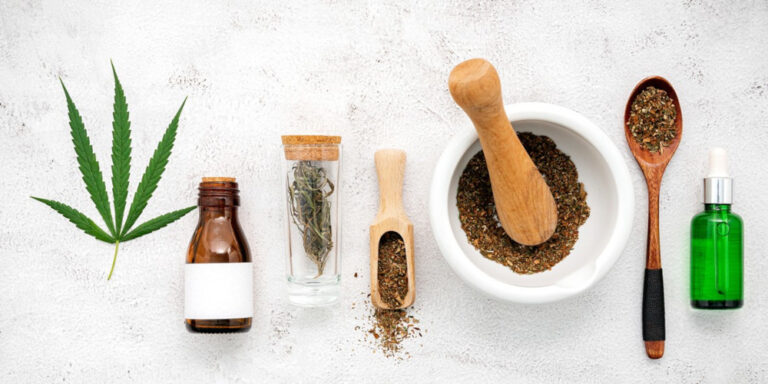Addiction is often described as numbness, a dulling of life, a fog that mutes everything. But there’s another side to it that’s less talked about, and far more insidious, the performance of feeling.Because addicts don’t always look detached. They can look animated, passionate, expressive, even deeply emotional. They laugh, cry, flirt, charm. They appear connected. But under the surface, those emotions are often rehearsed, not lived.
Addiction teaches you how to mimic life long after you’ve stopped feeling it. You become fluent in the language of emotion, fluent enough to fool others, and eventually, to fool yourself.
The Art of Pretending
When you live inside addiction, truth becomes unbearable. You can’t afford to feel everything honestly, guilt, fear, shame, grief. It’s too much. So you start curating what the world sees. You learn how to show just enough to seem human. You master the art of “almost.” Almost open. Almost honest. Almost okay.
You say “I’m fine” with the right tone, smile at the right time, cry when it’s safe. You build emotional reflexes that look like connection but don’t require vulnerability. You perform warmth while feeling cold inside. And the longer you perform, the harder it becomes to remember what genuine warmth even feels like.
The First Lie, “I’m Still Me”
Every addict has a moment where they know they’ve started slipping, that their reactions don’t feel natural anymore. The laughter feels forced. The tears feel delayed. The joy feels secondhand. That’s when the first lie arrives, “I’m still me.” You cling to it because losing your emotional identity feels like dying. So you mimic who you used to be. You use memory to reconstruct personality. But emotion doesn’t come from memory, it comes from presence. And presence is exactly what addiction takes from you.
Addiction rewires the brain’s emotional circuitry. The drugs, alcohol, or behaviours hijack dopamine and serotonin, the chemicals that regulate pleasure, motivation, and empathy.
Your brain stops responding to natural joy because it’s been taught to expect chemical shortcuts. That’s why everyday happiness, a meal, a sunset, a hug, starts feeling hollow. You don’t stop wanting to feel, you just lose access to how.
So you improvise. You act out emotions like someone copying from a script. You become an understudy in your own life, rehearsing scenes that used to come naturally.
The Illusion of Connection
To outsiders, addicts often seem emotionally intense. They fall in love fast, cry hard, express grand ideas, and speak with conviction. But much of that intensity isn’t depth, it’s distortion. Addiction magnifies feelings in bursts, then leaves emptiness behind. The highs look like passion, but they’re really desperation. The charm looks like warmth, but it’s survival instinct, a way to stay liked, protected, safe.
You don’t connect because you feel, you connect because you need. Addiction turns every emotion into a transaction. After every emotional performance, there’s a crash. You’ve given something you didn’t really have, and now you feel emptier than before.
You replay conversations, wondering if you said the right thing. You overthink your reactions, searching for sincerity you can’t locate. That emptiness drives you back to your coping mechanism. Because pretending to feel is exhausting, and addiction offers the perfect excuse to stop trying.
The substance becomes a refuge from your own performance.
The Relationships Built on Acting
In addiction, relationships often become co-dependent performances, you play the role the other person needs, and they play the role you need them to. You become the charmer, the comedian, the caretaker, the victim. You give them emotion on demand, not because it’s real, but because it keeps the relationship functioning.
If they believe you’re fine, you don’t have to change. If they believe you’re vulnerable, you don’t have to be accountable. It’s not cruelty, it’s fear. You’re terrified that if someone saw the real you, numb, hollow, tired, they’d leave. So you keep performing, even when the stage is burning.
The Body That Knows Before You Do
You can fake emotions, but your body keeps score. Even when your face smiles, your heart rate stays high. Even when you laugh, your stomach twists. Your body reacts to truth, even when your brain refuses to.
That’s why addicts often describe living with constant tension, muscles tight, sleep shallow, breath uneven. It’s the body resisting the lie. You’ve numbed your feelings, but you can’t numb physiology. The body knows the truth long before the mind dares to admit it.
The Social Skill That Becomes Survival
Addicts are often emotionally intelligent, sometimes too much so. They know how to read a room, sense tension, and adapt their personality accordingly. That sensitivity starts as empathy but turns into manipulation when the stakes are survival. You become whatever keeps the peace, whatever keeps suspicion away.
You mirror others to belong. You shape-shift to stay safe. Over time, the mask fuses to the skin. You forget where other people end and you begin. That’s how addiction kills identity, not through destruction, but through imitation.
The Emotional Counterfeiting of Recovery
Even in recovery, the habit of faking feeling doesn’t vanish overnight. You learn to talk about healing, but you might not feel healed. You say the right things in meetings, “one day at a time,” “I’m grateful,” “I’m blessed”, even when you’re numb inside. It’s not hypocrisy, it’s muscle memory. You’re still learning to distinguish real emotion from the rehearsed ones.
That’s why early recovery can feel strangely hollow, you’re living truthfully for the first time, but your emotional compass hasn’t recalibrated yet. You can’t fake your way into authenticity. You have to wait until your brain catches up to your honesty.
The Moment You Notice the Difference
There’s a moment, small, almost ordinary, when you realise a feeling has returned. It might be laughter that feels spontaneous, tears that come without warning, or a sunrise that stirs something you thought was gone. It’s disorienting. You don’t trust it at first. You poke at it, wondering if it’s real.
But it is. That’s the first withdrawal from the counterfeit. The first genuine emotion that didn’t need to be performed. It’s fragile, but it’s proof that you’re still in there somewhere.
The Guilt of Feeling Again
When real emotions return, they bring guilt with them. You start remembering who you hurt, what you avoided, what you faked. You feel remorse, grief, regret, the emotions addiction muted for years. It’s overwhelming. It’s tempting to run back to numbness. But this pain is progress.
You’re not being punished, you’re being reconnected. The heart that couldn’t feel anything now feels everything. It’s brutal, and it’s beautiful.
Learning to Feel Without Proof
In addiction, feelings had to be justified, “Why are you sad?” “What’s wrong?” “What happened?” In recovery, you learn to feel without needing proof. You cry because you’re alive. You feel joy without needing a reason. You let boredom exist without trying to medicate it.
That’s emotional honesty, letting your body register life as it is, without dressing it up or numbing it down. You stop performing emotion and start inhabiting it.
The Rebuild of the Emotional Muscle
Feeling again takes practice. You have to rebuild your tolerance for emotion the way someone in physical rehab rebuilds strength. You start small, gratitude, curiosity, laughter. Then you move on to harder weights, shame, grief, anger, vulnerability.
At first, it all feels raw. You overreact, underreact, misread cues. But that’s okay. You’re learning the language again after years of silence. The goal isn’t to feel good, it’s to feel real.
The Emotional Truth Beneath It All
Addiction made you an expert in emotional imitation because it convinced you that the real you wasn’t enough. Recovery shows you otherwise. It teaches you that you don’t have to perform worthiness, beauty, or empathy, you just have to return to them. Feeling again isn’t about becoming someone new. It’s about remembering the person you were before you had to fake being okay.
Because beneath every counterfeit emotion was a real one, waiting for you to finally stop pretending.










